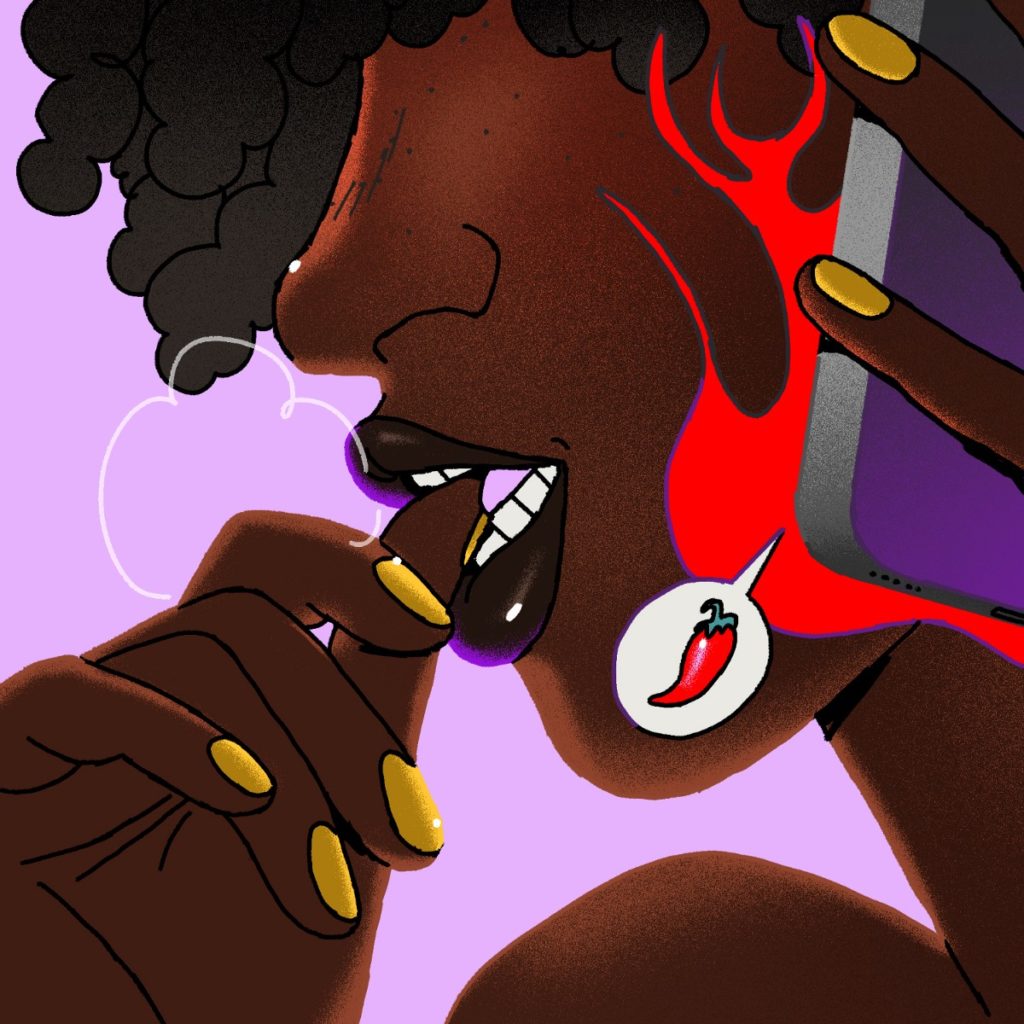Culture | February 26th, 2021
Black Female Sexuality: Unraveling A Generational Issue
By: Tiara Williams

With recent uproar and backlash on social media faced by rising artist Chloe Bailey for her sexual nature and content, the conversation of Black women and sexuality has entered the chat. For myself, along with many others, the discourse recalled the memories and emotions of the same struggles and backlash faced growing up as a young Black woman. The problem is, for many, this struggle begins at home.
Growing up my conversations about sex with my mother were surrounded by fear of pregnancy and the taboo nature of young women exploring sex. I had been taught that any form of sexuality — whether it be speaking on desires or embracing your body — was not to be expressed, and if it was, it should be only to and for the pleasure of your significant other. The concept of reveling in my sexual discovery was deemed “unladylike.” These conservative and patriarchal ideas had been acquiesced by my mother and stepfather from older generations of men and women and seemingly pushed onto me.
My mother loved throwing around that I could come to her about anything, including sex, but I knew to never do such a thing. Somehow, I had worked up the courage to share with her that I had lost my virginity, and the entire conversation centered on how disappointed she was. It was as if I was being made to feel bad for having innate sexual desires and feelings that were completely normal for a teenage girl.
Franchesca Reyes, a 19-year-old student from New York, knows the experience of not having open healthy discussions surrounding sex all too well. Reyes says, “Sex was never necessarily censored in the sense that by a certain age my parents knew I knew about sex so they wouldn’t avoid saying things around me…but I never had an actual conversation with my parents about my sex life or safe sex in general.”
For Reyes, the looming fear of judgment also played a significant role in her feeling safe to openly display her sexuality. “I did have to hide my sexual nature from my parents…the judgment that would come with them knowing would be overbearing,” she says.
Danielle Watson, a student from Pennsylvania, recalls that “[her parents] never made the environment comfortable enough for [her] to want to come to them.” She says, “We never spoke about [sex] they just act like I’m not growing up. I hid [sex] from my parents but I was fortunate enough to have a great relationship with my older sister to tell her things.”
Like myself, Watson learned sex from sources outside of her parents but the potential dangers of not having adult guidance to lean on are undeniable. When I disclosed to my mother that I was sexually active, she followed up by asking if I had used protection but did not explore other protective options with me because I had already taken care of it alone; she was too late. Had I not figured sex out on my own and been educated about contraception, things could have gone differently for the worse.
During puberty and sexual development, the release of oxytocin and vasopressin is normal for young women and causes such feelings and desires. I was often called ‘grown’ for bringing up sex or mentioning my interest in birth control. Being ‘grown’ has the negative connotation that one is too advanced for one’s age and is doing something displeasing — in this situation anything relating to sex and sexuality. In Reyes’ household, like many households that hold women firm to unrealistic standards, being grown was “dressing inappropriately for my age (whatever age that would’ve been) and being very flirty when talking to men.”
These ideas and the experiences we’ve faced growing up are a part of a bigger issue. The sexualization of Black women and the view that Black women and girls are hypersexual is rooted in racism and has been harmfully adopted by our community. It starts in Africa before the slave trade. Semi-nudity of women (due to climate conditions), polygamy, and tribal dances were a part of African culture. When Europeans came to Africa they interpreted semi-nudity as lewdness and saw polygamy and tribal dances as proof of African women’s sexual lust.
From then African women were stereotyped as lascivious creatures and this stereotype was used to rationalize rape and sexual abuse. The idea that Black women were promiscuous was established before the slave trade, during slavery, and still to this day. White women have been historically portrayed as women with self-respect, control, modesty, and sexual purity while Black women have been portrayed as promiscuous, seductive, tempting, and lewd.
Many of us, Black women, have come to terms with the fact that our families and society will never truly accept our sexuality and have begun to learn to love and appreciate ourselves. However, our love for ourselves does not change the image society has of us or the bias standards we are held to.
“I am [now] comfortable publicly displaying my sexuality because I have learned not to care. When I was younger I would block my family members on social media in order to freely be myself…The older I get the less I care about the judgment that comes with doing whatever I want,” Reyes says.
Black girls growing into their womanhood quickly learn that they are either to conform and pocket their sexual desires or release themselves from the shame of their sexuality. Watson says, “Over time, I’ve learned that my parents will never be comfortable with me getting older and I’ve genuinely started not to care. So instead of living for my parents, I’ve started to live for me.”





